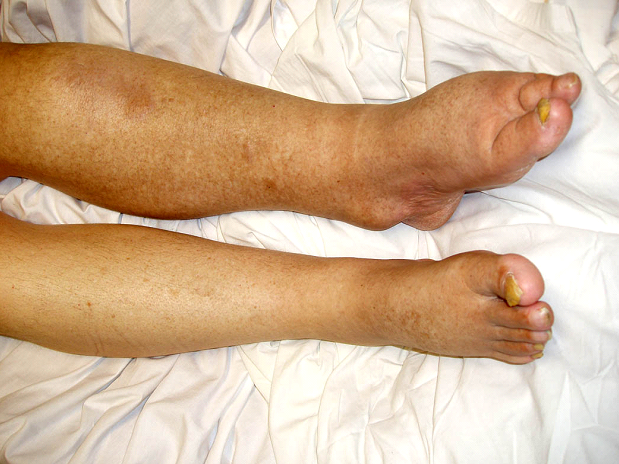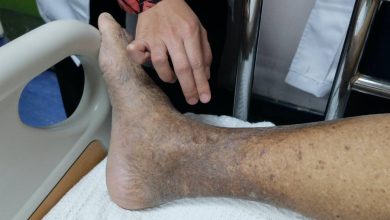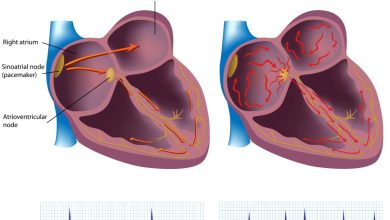Lymphedema Symptoms, Causes, Diagnosis and Treatment

What Is Lymphedema?
Lymph nodes are small glands in the body that fights bacteria and infections. During a cancer treatment, lymph nodes are often removed or damaged resulting in a blockage in the lymphatic system. This lymphatic obstruction leads to the retention of protein-rich fluid and water. When the fluid is not able to drain off well, swelling occurs. At times, only one arm or one leg is affected while a second case is when either arms or both legs swell, depending on the cancer treatment that was done.
What Are The Symptoms Of Lymphedema?
The symptoms either evolve on arms or legs. The following symptoms may occur in lymphedema:
- Continual infections.
- Thick and hard skin.
- Affected area being heavy or tight.
- Parts of arms or legs, fingers for example, swell.
- Ache.
- Discomfort.
The swelling depends on the severity of the condition. In some cases the swelling is so intense that moving the affected area becomes difficult. Alternatively, the swelling could be minor. The symptoms, however, may not evolve after months or even years if lymphedema is caused due to cancer treatment.
What Causes Lymphedema?
Lymphedema is divided into two types i.e. primary and secondary. Generally, lymph vessels are responsible to carry protein-filled fluid and harmful particles throughout the body. Lymphocytes that dwell in the lymph nodes then filter the particles and fluid to throw the waste out of the body. Now, lymphedema can either occur naturally i.e. primary lymphedema or due to a disease or underlying condition i.e. secondary lymphedema. The latter can be caused due to:
- Cancer.
- Infection.
- Surgery.
- Cancer radiation treatment.
Primary lymphedema can be caused by:
- Lymphedema tarda.
- Congenital lymphedema.
- Lymphedema praecox.
An old age, rheumatoid arthritis and being overweight are some factors that increase the risk of suffering from lymphedema.
What Are The Complications Of Lymphedema?
Lymphedema could lead to complications such as:
- Lymphangiosarcoma is a soft-tissue cancer which could occur if lymphedema is left untreated.
- Bacterial infections like cellulitis and lymph vessel infection like lymphangitis could occur.
How Is Lymphedema Diagnosed?
In some cases, lymphedema could not simply be diagnosed through observations of symptoms. Therefore, the following tests may assist doctors in diagnosing lymphedema:
- Doppler Ultrasound to help find obstructions.
- Magnetic resonance imaging or MRI.
- Computerized tomography or CT scan.
- Lymphoscintigraphy is the radionuclide imaging of lymphatic system.
Generally, if a person undergoes a cancer treatment involving the lymph nodes, doctors may easily recognize lymphedema through the evolving symptoms and may not require any test results.
How Is Lymphedema Treated?
Since lymphedema is not treatable, doctors recommend several treatments to improve the swelling and symptoms and reduce pain. These may include:
- Massage. However, people with skin infection, blood clots, heart failure or cancer should avoid massage.
- Exercises that involve movement of the affected area.
- Bandaging arms and legs.
- Compression clothes.
- Complete decongestive therapy or CDT to change lifestyle.
- Pneumatic compression.
Depending on the severity of the condition, doctors might suggest a combination of these treatments.
By : Natural Health News




